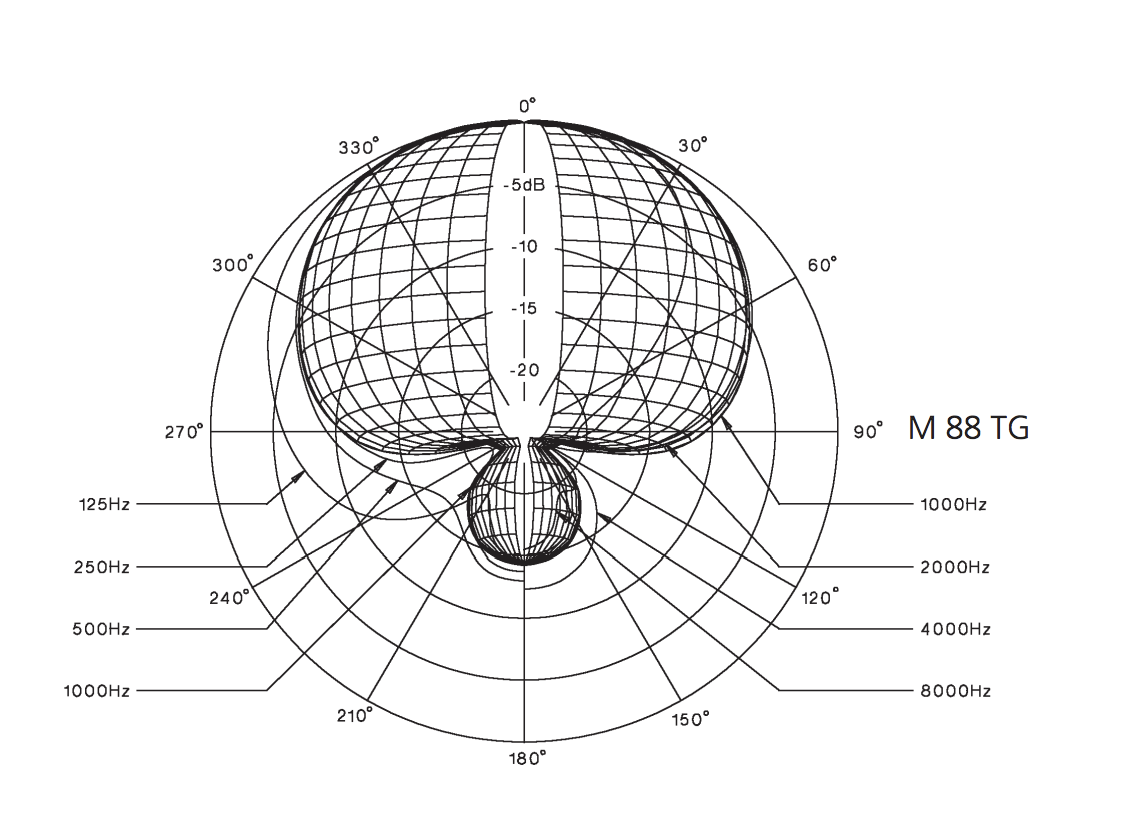Today we're looking at another handheld dynamic microphone from Beyerdynamic, but this time it's a hypercardioid mic, and it is the M88TG.
For this review, I have the mic connected directly to the Focusrite Scarlett 2i2 2nd gen, with the gain set at 2:30. I have done no post processing on the audio, it is all raw, but the audio was slightly boosted in final cut pro X to simply make the audio easier to listen to.
If you are interested in this microphone, it will set you back $350.00 - $400.00 on Amazon
What's In the Box
Carrying/Storage Pouch
Microphone
Microphone Mount (5/8" & 3/8" threading)
Documentation
Specifications
Frequency Response: 30Hz - 20kHz
Polar Pattern: Hyper-Cardioid
Sensitivity: ~-51dB
Impedance: 200-ohms
Performance / Features
The build quality of this mic feels very beefy. It has an all metal body which has some substantial weight to it. Additionally, the metal grill is a tank. Most of the time when I squeeze the grill, there's some give to it, but this held firm. There are no features on this mic, but on the bottom you will find the XLR port.
The frequency response is listed as 30Hz - 20kHz. This has a minor roll off beginning at 150Hz. The low-mids are flat until you hit 1kHz where it begins to boost, reaching a max of 4dB at 2.5kHz. There is a .5dB cut at 5kHz (+3.5dB) and a 1dB boost at 6.5kHz (+6dB) And then there is a gradual roll off until 20khz.
The overall performance of this mic is great for voice. Being that this has a broader and less dramatic boost in the top end, it yields a much smoother and even sound than many other handheld dynamic microphones. On electric and acoustic, I found the microphone underwhelming with a bit of a honky sound to it, and a little bit of mud in the low end. Additionally, the microphone did excellent at background noise rejection, but it was subpar at handling noise and plosive rejection.
Pros
Hyper-cardioid great for bg noise rejection, feedback rejection, or bleed.
Very smooth sound
Pretty healthy output for a dynamic
Hefty build quality
Cons
Not good at rejection plosives
Did a bad job at handling noise rejection
Conclusion
It's not very surprising this mic was lackluster on guitars, as it is not marketed as a guitar microphone. Beyerdynamic markets this as a Kick Drum, Bass Drum, Vocal, and Woodwind microphone. Speaking of that, on vocals I think that tonally this microphone sounded excellent. The broader boost gave it a smoother sound which made it more pleasant to listen to than most handheld dynamics, and that's why I recommend it for that. If you do plan to pick this microphone up, I believe it is essential to pick up a pop filter, and leave it in a stand or have a very soft touch.
If you have any additional questions about this microphone, leave them on the youtube video, and I will try to reply ASAP.
Buy the Beyerdynamic M88 TG
US: https://amzn.to/2M0Oykg
UK: https://amzn.to/2tfukv2
CA: https://amzn.to/2t8U6ls
DE: https://amzn.to/2yn94cD
Buy the Focusrite Scarlett 2i2 (2nd Gen)
US: http://amzn.to/2vDFbzK
UK: http://amzn.to/2w8O2f6
CA: http://amzn.to/2wKGKfG
DE: http://amzn.to/2hbtxsV


